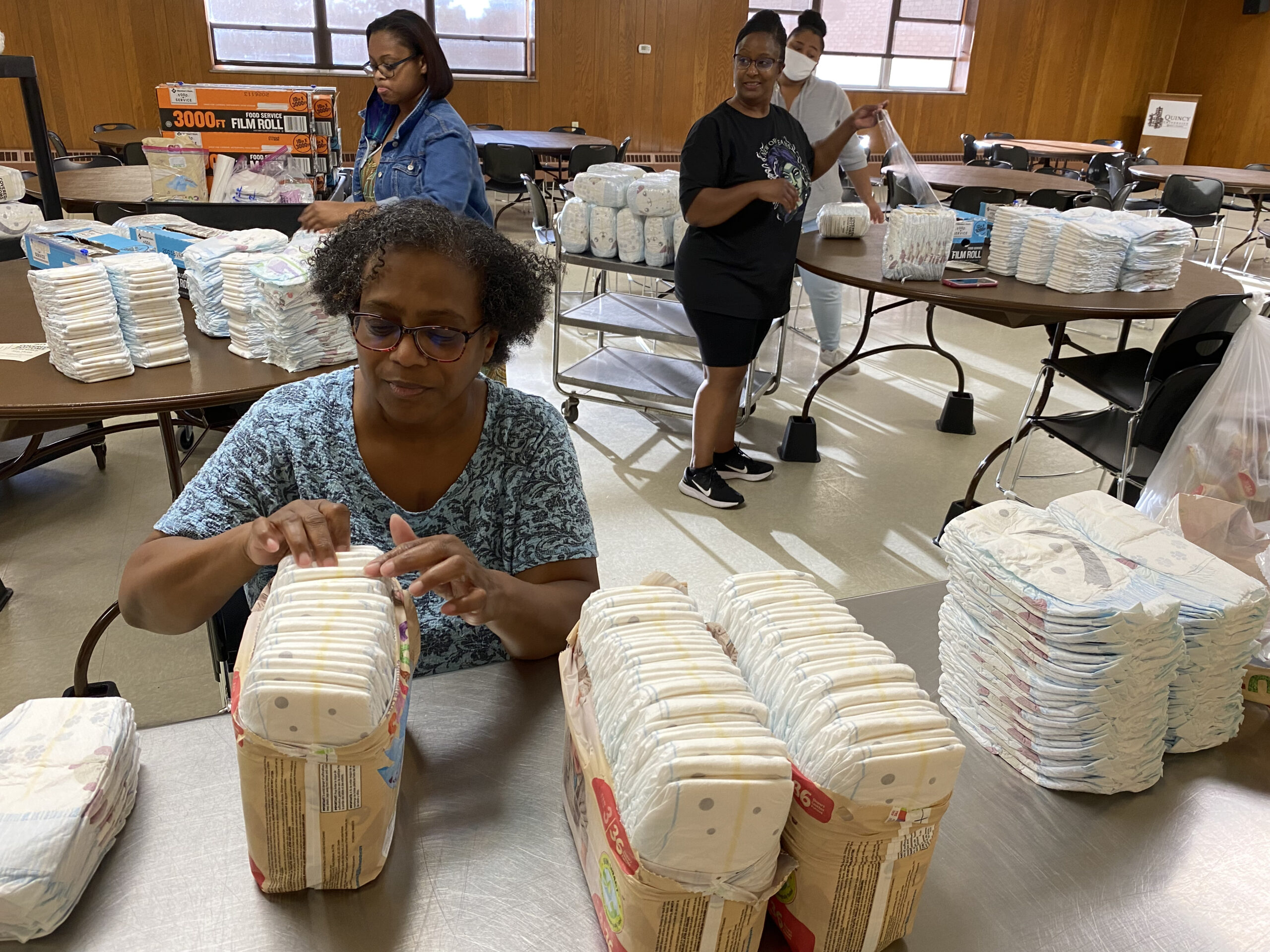Local diaper bank celebrating one-year anniversary with fundraiser on Wednesday

QUINCY — The Covered Bottoms Diaper Bank started a year ago to help address a basic need for young local families.
The National Diaper Bank Network, based out of New Haven, Conn., reports one in three families in the United States must deal with unmet diaper needs, affecting their ability to nurture happy and healthy babies.
Since earning 501(c)3 status in September 2020, Covered Bottoms has distributed 103,110 diapers through partner organizations — Bella Ease, Child and Family Connections, Connect Child and Family Solutions, Cornerstone-First Steps, DCFS, Horizons Soup Kitchen and Food Pantry, Parent and Child Together, Salvation Army, Transitions: Parents as Teachers, West Central Child Care Connection and Adams County Health Department’s Women, Infants and Children program.
National Diaper Need Awareness Week starts Monday and continues through Oct. 3. To celebrate its first year, Covered Bottoms is having a diaper drive and fundraiser from 10 a.m. to 2 p.m. Wednesday in Parking Lot L of Quincy University’s North Campus, 1729 Seminary Road.
Covered Bottoms, an initiative of the All Our Kids program with the Adams County Health Department, will accept donations of diapers, newborn through size 6, along with wipes and monetary contributions. Individuals or businesses also can donate online or send checks to Covered Bottoms Diaper Bank, 510 Maine, Suite 610, Quincy, Ill. 62301.
Hanke pulls multiple organizations together
“We are a 501(c)3, so we beg for money,” AOK coordinator Anita Hanke said. “That’s why we’re currently we’re doing our diaper drive. We have been so, so blessed with community support.”
Hanke pulls multiple organizations together to share information, coordinate agencies and hopefully avoid duplicate services.
“I’m the top of the umbrella, and everything else is under me,” she said. “So when I started with this job about three years ago, there had been talk about doing a diaper bank. There was a need in the community, so I started working on that.”
Hanke met with Marla Willard from the West Central Childcare Connection, which is part of the National Diaper Bank Network, to help form Covered Bottoms.
Diaper bank also helps families get other services
Organizations such as the Tracy Foundation and the Kiwanis Club have made financial donations. Hanke says a local church offers monthly support. Covered Bottoms also writes for grants.
“We can buy our diapers, because we’re part of the National Diaper Bank, for pennies on the dollar,” Hanke said. “When people want to give us diapers, that is truly fabulous. If they want to give us money, we can make those dollars go twice as far.”
Covered Bottoms provides the diapers to local agencies, which then distribute them to their families.
“We’re here to help anybody we can. The whole idea is to help these families get into other services that can also help them with their family, finances, home and basic needs,” Hanke said.
“If I have somebody who needs diapers and they need other things, maybe I see how they could fit into the Salvation Army. If I have a family call, and they have a 2-year-old, I can ask if are they getting support from Transitions, which would be their Parents as Teachers program, or Cornerstone, which has its First Steps program. I can take that referral and pass it on to those agencies that can help.”
Families typically short about 50 diapers a month
Hanke says unmet diaper need has been cited as the biggest mental health stressor for new parents. Most government assistance programs do not cover diapers, which can cost an average family $70 to $80 per month per child in diapers. That figure equals about 14 percent of the monthly income of families experiencing poverty.
Hanke emphasizes that Covered Bottoms doesn’t fill a family’s entire diaper need. Families are allowed to get up to 50 diapers a month through the program.
“We have found nationwide that it’s about 50 diapers a month that a family is short,” she said. “So when a family looks at going to the grocery store, are they going to buy milk? Are they going to buy diapers? That’s what a lot of families look at when it comes to the end of the month.”
Covered Bottoms uses space in the basement of Quincy University’s North Campus facility to store diapers. Two rooms previously used as refrigeration coolers now are used to organize the diapers by size. A donation from Home Depot allowed for shelves to be built. Local volunteer groups meet at QU to put together packages of 25 diapers to be distributed.
“It’s just a really great community collaboration that has come together,” Hanke said.
Miss Clipping Out Stories to Save for Later?
Click the Purchase Story button below to order a print of this story. We will print it for you on matte photo paper to keep forever.

